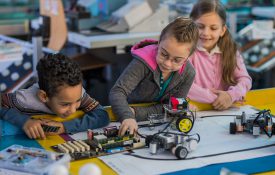
Which Study Strategies Make the Grade?
A scientific review suggests that several popular study strategies are ineffective, while effective strategies are underused. Visit Page
A collection of research published in the APS journals in 2022 and 2023 related to peer relationships, pandemic-related learning losses, the positive impacts of growth mindsets, and much more. Visit Page

Podcast: Only about half of psychology PhDs are hired in academia, but psychology graduate training in the United States has largely retained the classic graduate training model of a direct path to an academic job. It's time to change that, says Wendy Wood. Visit Page

Monitoring of students' brain activity shows that "getting on the same wavelength" within groups of students and between students and their teacher is predictive of learning outcomes. Visit Page

Graduate student Edward Pashkov discusses seven paradigmatic sins that many beginner graduate students commit—and suggests how to learn from them. Visit Page

Other than a handful of modern monarchs and heirs to proverbial corporate thrones, most leaders aren’t born, they’re developed. Researchers are just beginning to investigate how individuals of all ages learn to take the reins. Visit Page

Where are all the neurodivergent scholars and research participants? Eight scholars make the case for greater adoption of open scholarship practices, “slow science,” intersectional collaboration, and more. Visit Page
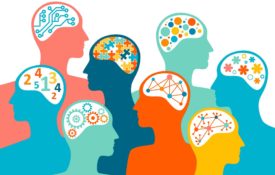
Lesson plans about successive relearning and finding happiness after being diagnosed with a mental disorder. Visit Page

Humans and other mammals aren’t the only entities capable of adapting to their environment—schools of fish, robots, and even our genes can learn new behaviors. Visit Page

Language, whether spoken or read, is a tool that is constantly changing and growing, but research demonstrates that it may still be possible to pin down how it functions at its core. Visit Page

Unlike traditional "blocked" testing, which requires students to retrieve information about a single topic, interleaved testing presents a mix of topics from various lessons in order to encourage deeper conceptual learning. Visit Page
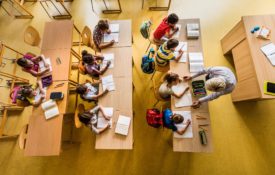
Third-year doctoral student Teona Velehorschi provides tips to help students manage the demands associated with the world of academia. Visit Page
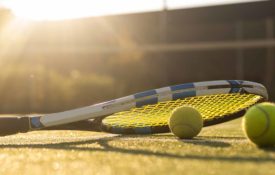
When it comes to learning to read, new research suggests that explicit instruction—a phonics teaching method in which the relationship between sound and spelling is taught directly and systematically—is more effective than self-discovery through reading. Visit Page
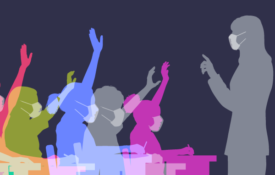
Reading aloud or acting something out can help us remember new information, but those strategies may not always be practical or appropriate for the setting. When those strategies fall short, you might want to try Visit Page
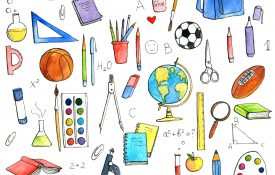
Researchers hope some new findings may eventually generate guidelines to help teachers optimally design classrooms. Visit Page

A scientific report emphasizes the importance of teaching phonics in establishing fundamental reading skills in early childhood. Visit Page

Data collected over a 50-year span suggests that selective schools aren’t uniformly beneficial to students’ educational and professional outcomes in the following decades. Visit Page
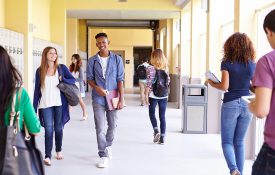
Students may find a topic difficult to understand if their background knowledge doesn't pass a certain threshold, but a quick test can help identify those students who are at risk of falling behind. Visit Page

A roundup of the research evaluating five popular study strategies suggests that many students are missing two of the most powerful approaches to learning. Visit Page

Read about the advantages of using the programming language R in data processing and statistical analysis. Visit Page
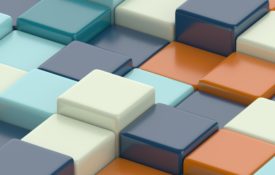
Healthy adults who learn information more quickly than their peers also have better long-term retention for the material despite spending less time studying it, a new study published in Psychological Science, a journal of the Visit Page

The second language learning literature emphasizes comprehension for language learning, but memory research suggests that producing the language is just as important for learning. Visit Page
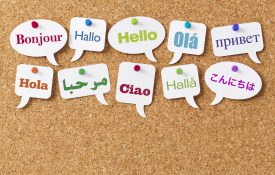
To avoid overestimating your abilities, reflect on past learning rather than trying to guess how you’ll perform in the future. Visit Page
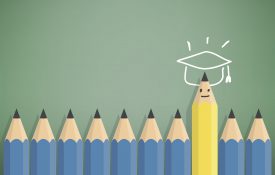
College students who reflected about how to best use classroom resources had higher final grades relative to their peers. Visit Page

There is little scientific evidence to suggest that speed reading offers a shortcut to understanding lots of text. Visit Page

A comprehensive research report provides an evidence-based guide that parents, educators, and app designers alike can use to evaluate the quality of so-called “educational” apps. Visit Page
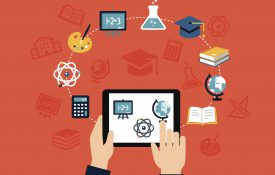
College students who underwent mindfulness training showed improved working memory and verbal reasoning scores. Visit Page

Data suggest that taking notes by hand beats typing notes on a laptop for remembering conceptual information over time. Visit Page

Sleeping between study sessions may make it easier to recall what you studied and relearn what you forgot, with lasting results. Visit Page

Students who surfed the web in a college course had lower scores on the final exam than did those who didn’t go online. Visit Page

Multitasking impaired students' overall memory but not their ability to identify and remember the most important material. Visit Page

Research shows how math anxiety impacts students and suggests interventions to buffer these negative effects. Visit Page
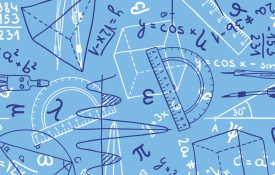
Research suggests that restudying material can be a useful learning strategy, especially if that restudying is spaced out in time. Visit Page

How we feel when encountering information that we're trying to learn biases our ability to predict what we'll remember. Visit Page
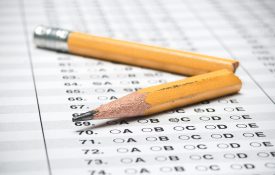
A year of schooling leaves students with new knowledge, and it also equates with a small but noticeable increase to students’ IQ, according to a systematic meta-analysis published in Psychological Science, a journal of the Visit Page

A field study in Malawi indicates that psychological factors play an important role in whether girls attended school, even under conditions of extreme poverty and deprivation Visit Page

Students who use hands-on approaches to test or demonstrate scientific concepts understand the concepts more deeply and score better on science tests. Visit Page
